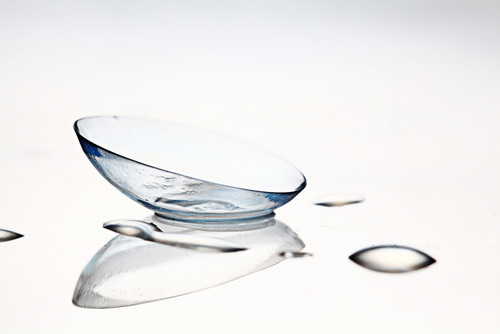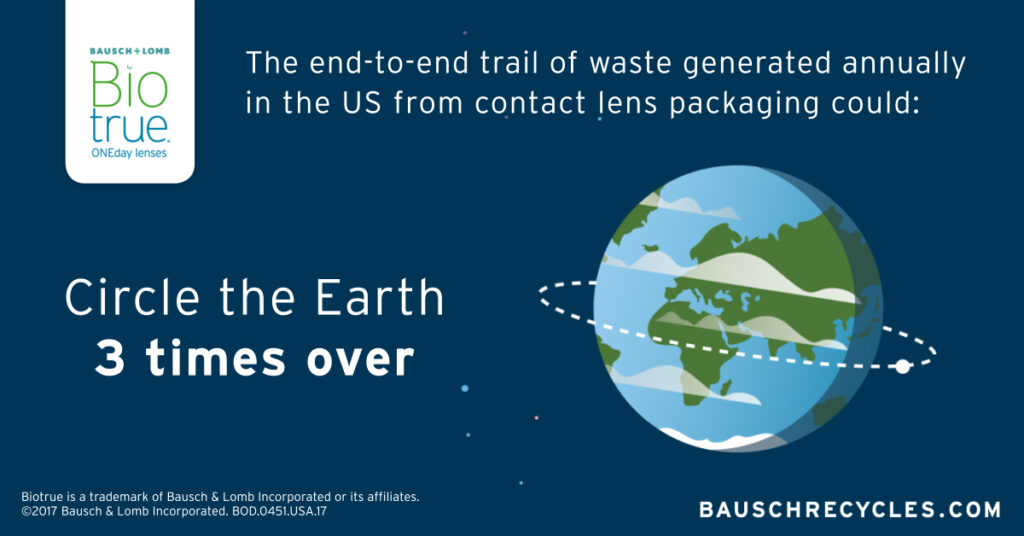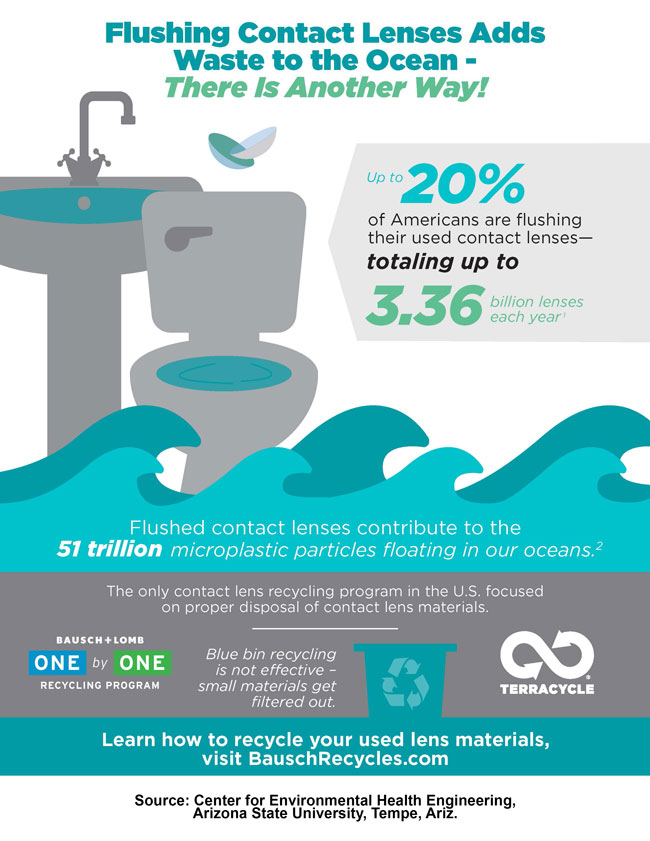Posted by: Associates in Ophthalmology (NJ) in Eyes

We often wear contacts to avoid having to live with the struggles that come with wearing glasses. Whether it be for cosmetic reasons, convenience, or both, many people prefer to use disposable soft contact lenses.
But what should you do with your contact lenses when you’re finished with them? Keep reading to learn why recycling your contact lenses is so important!
What Happens To Contact Lenses When They Are Not Recycled?
While contacts are a viable way to achieve the excellent vision, it comes at a price that goes beyond cost. The waste created from disposing of contact lenses is unbelievable.

The packaging of contact lenses alone has proven to have a dramatic impact on our environment. Communities all over the world face growing concerns over pollution.
What does it mean to the future of our planet? It is now our responsibility to look at every aspect of the way we handle our waste.
One of the biggest concerns with contact lens disposal is creating microplastics. When plastic is exposed to the elements, it slowly begins to break down.
It begins by fragmenting into tiny pieces and strands of fibers, no bigger than a grain of sand. This is incredibly detrimental to wildlife.
The Creation of Microplastics
Wildlife of all kinds unknowingly consume the plastic or enter animals’ respiratory systems. Microplastics are a big problem in the ocean, where a large amount of plastic waste ends up.
This, in particular, affects fish, who are a large part of global diets. Since fish are low on the food chain, this problem is a direct threat to human health.

As more and more fish become exposed to microplastics, so do people. These plastics are made using toxic and carcinogenic chemicals.
If throwing away your contact lenses is bad, does that mean flushing them down the toilet is as well? Yes.
Flushing your contact lenses are part of the problem since much of that waste ends up in the ocean. Contact lenses take an incredibly long time to break down, which contributes to the microplastics problem.
Associates In Ophthalmology Teams Up With TerraCycle
One thing you can do is throw away your contacts instead of flushing them. While not ideal, have plastics end up in landfills is better than them ending up in the ocean.
But what if there was a better way?

There is a better way! Associates in Ophthalmology could not be more proud to announce that we have teamed up with TerraCycle, as a part of the ongoing ONE by ONE program. The ONE by ONE program aims to eliminate plastic waste from contact lenses and blister packs.
ONE by ONE is a free recycling program that allows you to drop off used and discarded contacts to be properly recycled. This includes any and all brands of contacts!
Just bring them into our office in Livingston and let us take care of properly recycling them for you.
If you aren’t in New Jersey, you can visit TerraCycle’s website to find participating locations that are close to you. TerraCycle runs many more programs to help promote recycling.
You can also donate or purchase recycled items through their website to help contribute to the initiative to save our environment!
We are all on this planet together, so let’s do our part to keep it healthy!
Have questions about contact lenses or your eye care? Schedule an appointment at Associates in Opthalmology in Livingston, NJ!

